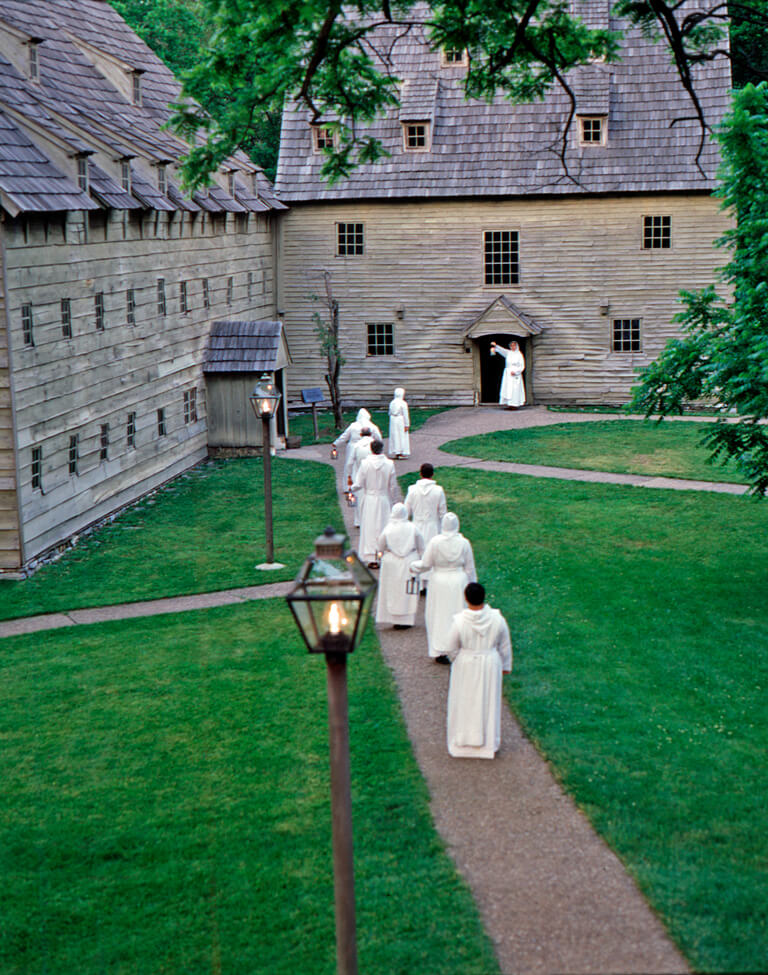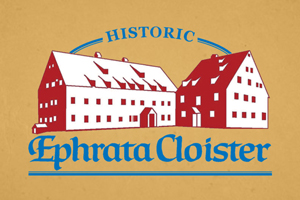
Historic Ephrata Cloister: A Unique 18th-Century Monastic Settlement
In the 1700s, visitors to Ephrata encountered a distinctive monastic community, which they termed a “Cloister.” This settlement was founded in 1732 by Conrad Beissel, who sought to live as a hermit according to his own religious beliefs. Beissel emphasized preparing for a spiritual union with God, which he believed would occur imminently with the Second Coming.
By the early 1750s, Ephrata Cloister was home to nearly 80 celibate Brothers and Sisters who lived in striking Germanic-style log, stone, and half-timbered buildings. Alongside them, nearly 250 family members, known as Householders, resided in nearby homes and farms.
The celibate members led a life marked by discipline, balancing labor with private prayer. Dressed in white robes, they adhered to sparse diets and limited sleep as part of their spiritual practice. Their work was diverse, including farming, papermaking, carpentry, milling, and textile production—all essential to sustaining the community as they prepared for their anticipated heavenly existence.
Ephrata became known for:
- the German calligraphic art of Frakturschriften, created in a distinctive style considered the first of this folk art produced in America
- self-composed a cappella music written using Beissel’s rules for four-part harmony, with over one-thousand original compositions
- an ambitious printing establishment creating works for the use of the community and neighbors, including the translation and publication of the 1500 page Martyrs Mirror for the Mennonites, the largest book printed in colonial America
During the American Revolution, Ephrata served as a hospital for nearly 250 American soldiers, some of whom rest in the Mount Zion cemetery overlooking the historic grounds.
The Society declined after the death of the charismatic Beissel in 1768. The last celibate member died in 1813 and the next year the remaining Householders incorporated into the German Seventh Day Baptist Church. Members continued to live and worship in the Cloister buildings until the close of the Church in 1934.
In 1941 the Pennsylvania Historical and Museum Commission assumed administration and began a program of research, restoration, and interpretation of this important historic site with the support of the Ephrata Cloister Associates.
Click here to watch a 15 minute introductory video about the Ephrata Cloister.



